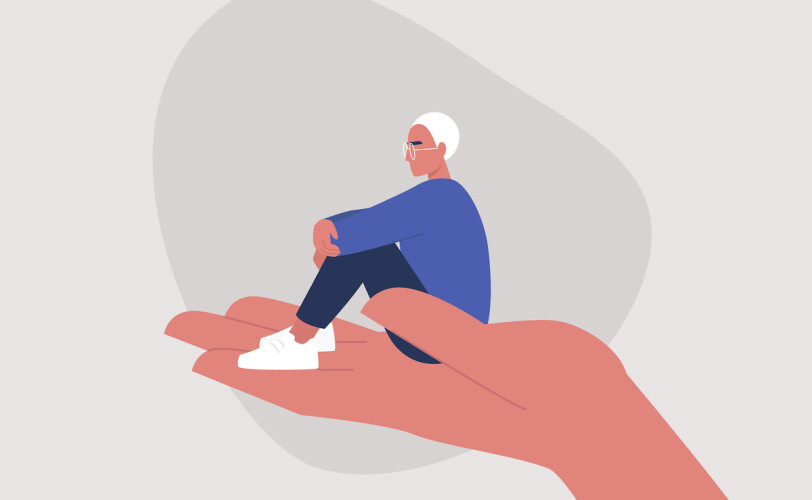Grief in the time of Covid
Bereavement, and loss. The journey back. This Corona crisis period has not been an easy ride. Specifically, if you have lost someone in this last year. We have become accustomed to the daily statistics broadcast on the news, as if it was a league table. Every death has impacted on family, friends, and the wider community.

However, people have also died from non c19 related causes.
It seems like this ‘ordinary death’ has been overlooked, made less important, pushed to the background. For in the UK culture, we do not talk easily about death and dying.
I have lost people, friends, relatives, parents over the many years. Some of these have been ‘good innings’, long illness, or sudden and dramatic.
The one thing I have taken from all of this is that in the end, personally encountering death can change everything.
I am not writing this to cover the ground of the theologians and philosophers who have written about this for centuries, I am writing to suggest that counselling, speaking in confidence to a person outside the ongoing drama, is a useful way to navigate the unknown territory of grief.
The aftermath
I suppose we all know what to do. Our rituals and communal ways of celebrating a life are familiar to us. The performative acts of the funerary rites are well established. The meaning is clear to us as to what must be done if we have lost someone. We know what to do to say the last farewell.
It is the following silence that follows the funeral, the drawing of the curtain and the rejoining of our everyday life where the journey of grief starts.
Grief - the emotional hi-jacker
Dr Kubler-Ross provided a map of the territory in the late 60s in the renowned book On Death & Dying (1969).
The model she presented, based on her research and experience, is seen as a guide to the unforeseen consequences of grief. Grief is a natural process, an emotional response that we have little or no conscious control over.
This map of grief responses includes denial, anger/guilt, bargaining, depression and finally acceptance. These are the valleys and hills of our emotional landscape.
This outline at least provides a few footholds in understanding the complexity of feelings in the climb back to the everyday world.
There is no order in these occurring, no time limit, no guide to the ‘proper’ way to grieve.

Cultures differ
Some cultures have a structured ritualistic path, handed down from one generation to the next. The wearing of black clothing, the number of days set aside for the grieving process etc.
Sadly, living in the UK, I see mainstream culture does not incorporate such things. Statements like “why are you not over it?”, “you just need to get on with it”, “that happened months ago” are not helpful and exhibit a lack of emotional intelligence.
Unfortunately, I have heard them all here. The expectation to tough it out seems to have set into the cultural unconscious as a rule that needs to be followed.
It appears the model we follow is somehow based on the movies we grew up with. In films people die, the funeral takes place and then a few minutes after it is a forgotten story. We do not live in this fictive world.
It is human to grieve. Grief is the price of love. Great poems, plays, movies and novels about loss show that we need to give expression to who we are and face our most painful emotions.
Death makes fools of us all. It reminds us that we are not in control, truly, of our own lives. No amount of money, education, material stuff can prevent it playing a part overshadowing our own lives.
It pinpoints that which we forget. Our own sense of vulnerability, our mortality. We grieve for those we have lost, but also, we grieve for that which we have learnt to forget about ourselves.
It is here, exposed to our own uncertainties about the world, our sense of invulnerability lost that counselling becomes useful. A life well lived is a life worth investigating.
In examining our losses and our encounter with the great unknown riches can be discovered, new journeys can start. Through this painful experience we can learn more about ourselves and utilise it to add more to our lives. Through seeing a counsellor this door has the potential to be opened and understood more clearly.
Grief in the time of Covid
I have written this piece because the past year has been difficult. As a society we have not paid attention to the individual stories of loss, preferring to find some examples for the TV news. We have been wilfully staying blind to the fact that ordinary life and death has gone on much as before.
The traditional shared experience of mourning has been kicked into the long grass. Somehow recorded or streamed funerals have been empty emotionless affairs.
Some of you reading this may have just gotten on with it. Others though I realise have become stuck with nowhere to take the pain of mourning and loss.
There is a place, still going throughout all this. The safe place of counsellors and counselling. The journey of grief is a place of reflection and cleared vision of our own travels through our lives.
We mourn our dead, mark anniversaries, and leave flowers or symbolic markers at the graveside as the years progress on. The passage of time helps, but fully expressing ourselves at this period of crisis can lead to pastures new.
Peace and good fortune.

Find a therapist dealing with Bereavement
All therapists are verified professionals






